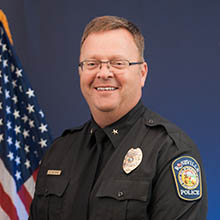
Recently, a Roseville Police Department policy was the subject of conversation at a meeting, but I was not afforded the opportunity to explain the wording of a certain sentence in our manual. I decided to address it in this week’s “One Chief’s Perspective.”
One of the benefits of being a law enforcement officer is the dynamic nature of this occupation; no two events are the same and variety is the nature of this job. That can also prove to be a challenge, especially when writing policies, as you cannot predict everything that may happen in an encounter. Policies should prepare employees to handle encounters correctly.
The community conversation centered on why the word “shall” was not in the policy as compared to the less restrictive words in the existing policy. When writing the policy, I specifically used the less restrictive words because of the dynamic nature of events; no one can predict future events with 100% certainty.
The International Association of Chiefs of Police (IACP) is the preeminent international leader in law enforcement. The IACP provides a wealth of information on numerous topics in law enforcement, and I trust their information to access best practices from across the world.
The IACP Model Policy section (accessible to members only) reads in part: “It should be noted the tone of the language used in the manual subtly impacts the organizational culture… The purpose of the manual is to empower the staff. So it is important to recognize every possible scenario cannot be identified and officers should be allowed the latitude they need for making decisions in unusual circumstances. If a negative tone is used in the manual (e.g., shall not, will not, are not, forbidden) it can permeate the ranks and promote cynical attitudes in staff. Consequently, the text of the manual should avoid focusing on prohibited acts, but rather emphasize conduct the department expects and supports of officers. Finally, there are very few absolutes in law enforcement. The courts have ruled that terms such as should, are to, and directed to, are not absolute. The use of “shall” is an absolute, and means under all circumstances and conditions officers will act in the manner described or directed… Because it is difficult to identify circumstances when officers are to always act in the same exact manner, the use of absolute language should be avoided whenever possible.”
A quick word search of our 426-page manual produced a healthy dose of the word “shall”. In my mind, that is too many and plan to address it soon. Many of the uses of “shall” are necessary; some are not.
This post was originally published as part of the September 8, 2017 edition of Chief Mathwig’s newsletter, One Chief’s Perspective.